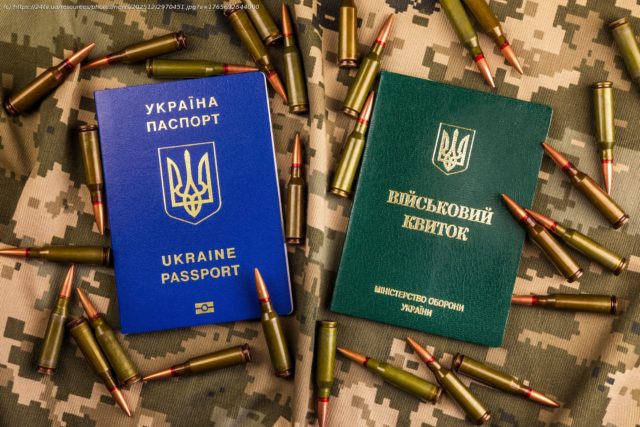Делегації США та України зустрінуться в Німеччині, щоб обговорити можливе припинення вогню у війні, пише Reuters. Що будуть обговорювати сторони на саміті у Берліні 15 грудня – Геополітика
У Німеччині пройдуть консультації США та України щодо можливого припинення вогню в Україні.
Саміт у Берліні 15 грудня за участю Президента України Володимира Зеленського та європейських лідерів обговорюватиме мирний план та відносини з США. Німеччина у вихідні 13 і 14 грудня приймає у себе делегації США та України. Це відбувається перед самітом із європейськими лідерами та президентом Володимиром Зеленським у Берліні, який пройде у понеділок, 15 грудня.
Про це повідомляє 24 Канал з посиланням на Reuters. Цю інформацію виданню на умовах анонімності надав німецький чиновник.Що будуть обговорювати делегації США та України на зустрічі в Німеччині?
Американський чиновник повідомив, що спецпосланник президента США Стів Віткофф разом із зятем Дональда Трампа Джаредом Кушнером вирушають до Німеччини на переговори за участю українських та європейських представників.
Як зазначає Reuters, рішення направити Віткоффа, який раніше очолював переговори з Україною та Росією щодо американського плану припинення війни, свідчить про те, що у Вашингтоні бачать шанс на зрушення в мирному процесі.
Раніше в Білому домі заявляли, що Трамп надішле офіційного представника на переговори лише за умови відчутного прогресу.
Цими вихідними в Берліні проходять консультації щодо можливого припинення вогню в Україні за участю радників із зовнішньої політики, зокрема зі США та України,
– повідомило джерело агентства в уряді Німеччини.
До речі, колишній міністр закордонних справ України Володимир Огризко в етері 24 Каналу пояснив, чому Дональд Трамп наразі відмовляється від зустрічі із Володимиром Зеленським. На думку дипломата, наразі американському лідеру важко аргументувати те, чому Україна має йти на поступки Росії у мирному плані.Перед чим відбуваються переговори США та України?
У понеділок, 15 грудня, канцлер Німеччини Фрідріх Мерц планує провести в Берліні саміт за участю Президента України Володимира Зеленського та європейських лідерів.
Останніми тижнями Велика Британія, Франція та Німеччина працювали над уточненням американських пропозицій. У проєкті мирного плану, оприлюдненому в листопаді, вони передбачали поступки територіями, відмову України від прагнення вступу до НАТО та обмеження чисельності її збройних сил.
У суботу, 13 грудня, Мерц заявив, що Європі варто готуватися до фундаментальних змін у відносинах зі США на тлі зростання загрози з боку Росії.
Американці зараз дуже, дуже агресивно переслідують власні інтереси. А це може означати лише одне: ми теж маємо тепер переслідувати власні інтереси,
– сказав він.
Володимир Зеленський у суботньому відеозверненні зазначив, що йде підготовка до зустрічей з американською стороною та європейськими партнерами найближчими днями, а також що у Берліні буде багато подій.Що обговорила Британія та Єврокомісія напередодні саміту у Берліні?
На сайті британського уряду 13 грудня з’явилася інформація, що прем’єр-міністр Кір Стармер мав телефонну розмову із президенткою Єврокомісії Урсулою фон дер Ляєн. Їхня дискусія була зосереджена на поточній роботі над мирним планом під керівництвом США.
Зазначається, що обидва лідери погодилися, що “це вирішальний момент для майбутнього України, і що Європа буде підтримувати її стільки, скільки буде потрібно для досягнення справедливого і тривалого миру”.
Стармер і фон дер Ляєн також обговорили останній прогрес у щодо використання заморожених російських активів.Що містилося в українському варіанті мирного плану?
NYT розповіло, що Україна передала США зустрічну мирну пропозицію у відповідь на план президента Дональда Трампа. Українська версія документа складається із 20 пунктів та має відмінності із проєктом американської сторони.
Так, план не містить вимоги відмови від НАТО, передбачає юридично обов’язкові гарантії безпеки, та відкидає передання контрольованих Україною територій Росії. Документ також передбачає гарантії захисту від агресії Росії та збереження територій, які Україна наразі контролює.
Цікаво, що раніше Україна, США та Європа мали обговорити мирний план Трампа у Парижі у суботу, 13 грудня. Однак тоді зустріч неочікувано скасували.












